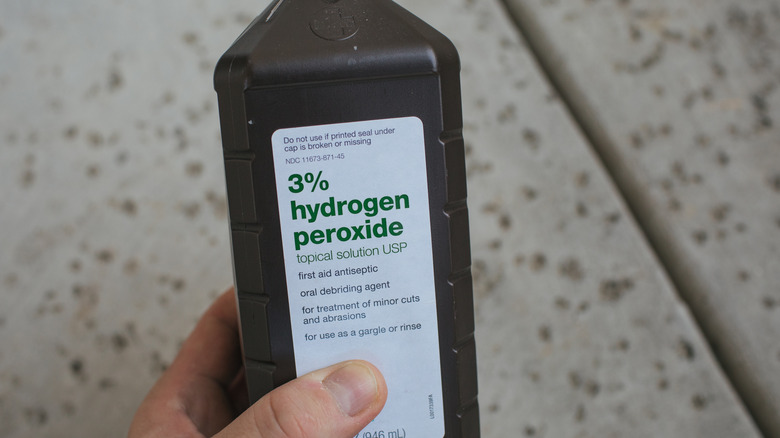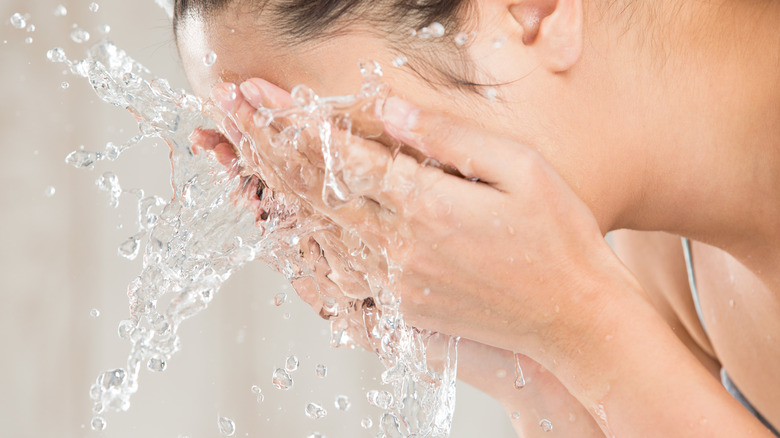Never Use Hydrogen Peroxide On Your Skin. Here's Why.
Hydrogen peroxide is most likely a staple in your first aid kit. While it is considered a necessity for its disinfecting properties, cleaning wounds, and fighting against harmful bacteria, it can actually be detrimental to your skin if overused.
This may come as a surprise, as hydrogen peroxide is known for being used to treat pimples in a pinch. Researchers found in one study that using a one percent hydrogen peroxide solution can treat acne as effectively as benzoyl peroxide, with fewer side effects (via Medical News Today). However, it is not likely you will find hydrogen peroxide concentrations under 3 percent in the United States.
Experts also point out that hydrogen peroxide would only be beneficial as a spot treatment on inflammatory acne, but it should still be used sparingly. Hydrogen peroxide can be harsh on sensitive skin, drying it out and potentially causing irritation to acne that is already inflamed and irritated (via Byrdie).
The best options for acne treatment
Using hydrogen peroxide on your skin can also lead to other negative side effects. Blisters, burns, redness, and swelling can occur when it gets on the skin, and there are adverse effects if consumed (via Medical News Today).
Hydrogen peroxide should only be used when absolutely necessary and no other options are available — not as a regular treatment option. Doctors tell Byrdie that traditional acne products containing salicylic acid, benzoyl peroxide or adapalene are better options for treatment.
You should also wash your face at least twice a day with mild soap, especially after sweating; remove any makeup; and keep a healthy diet to keep your skin glowing. If you are concerned with acne, it is best to meet with a dermatologist to discuss options for your specific skin type. However, if it's date night and you have a pimple that needs immediate attention, hydrogen peroxide can be a substitute on rare occasions.

